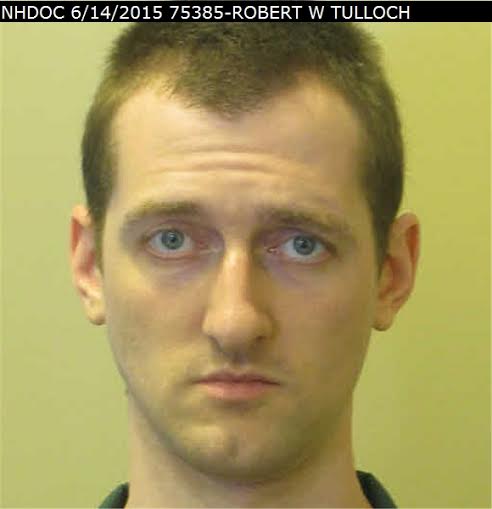By DAMIEN FISHER, InDepthNH.org
Prosecutors with the New Hampshire Attorney General’s Office do not want the state Supreme Court to consider the constitutionality of a life sentence without parole for convicted killer Robert Tulloch.
But Grafton Superior Court Judge Lawrence MacLeod is sending the question to the state Supreme Court justices anyway.
Tulloch pleaded guilty in 2002 to two counts of first-degree murder for killing Dartmouth College professors Half Zantop, 62, and Susanne Zantop, 55, in their Etna home in 2001. Tulloch was 17 and his accomplice, James Parker, was 16, at the time of the murders.
Tulloch has been seeking re-sentencing for years, arguing that life without parole for minors violates the state and federal constitutions. Last month, MacLeod issued an order referring the question to the state Supreme Court. This week, he denied the state’s motion to reconsider his referral.
MacLeod wrote in his November referral order that the Supreme Court needs to sort out two major questions. The first is whether life without parole for minors is constitutional. The second question is if such a sentence is constitutional, how should it be evoked.
Under the law as it stands, minors can be sentenced to life without parole after a hearing to decide “permanent incorrigibility.” That is the legal term for when someone lacks the ability to be reformed or change their life for the better.
The disagreement stems from Tulloch’s lawyers’ argument that any evidence of “permanent incorrigibly” needs to be proved beyond reasonable doubt. They also want to be able to introduce evidence showing Tulloch’s character changes that took place since he started his sentence.
Senior Assistant Attorney General Benjamin Agati asked MacLeod to hold a resentencing hearing without first going to the Supreme Court to settle the questions. Once MacLeod ruled on the resentencing, either party could then appeal to the Supreme Court, Agati argued.
Tulloch’s lawyers, Richard Guerriero and Oliver Bloom, argued going to the Supreme Court first would allow MacLeod to subsequently hold a resentencing hearing using the High Court’s decision, rather than going through resentencing first and risking an appeal that sends the case back for another resentencing.
Acknowledged by both defense and state lawyers is the fact Tulloch’s resentencing is likely to go before the Supreme Court in any event. Agati’s preferred process would possibly limit the scope of any Supreme Court appeal. Keeping broad legal questions away from the Supreme Court would then possibly prevent any ruling that could reset legal precedent and upend other sentences.
The Supreme Court has not yet received MacLeod’s final referral order, expected after the first of the year. The Supreme Court justices would review the order before deciding to take up the questions. It is possible they do not take the questions up before any resentencing takes place.
Parker and Tulloch, then Vermont high school students, bought knives and planned to rob and kill someone, take the money, and flee to Australia. They did not have a specific victim targeted when they began their scheme.
Parker and Tulloch reportedly tried to get into multiple homes before they gained entry into the Zantops’ home by pretending to conduct a survey. They were arrested weeks later in Indiana.
Parker agreed to plead guilty to second-degree murder for his role in the killings and to testify against Tulloch. He was sentenced to 25 years to life and released on parole this summer. Tulloch ultimately opted to plead to first-degree murder, which carried an automatic life without parole sentence. He was sentenced to two life sentences set to run concurrently.





